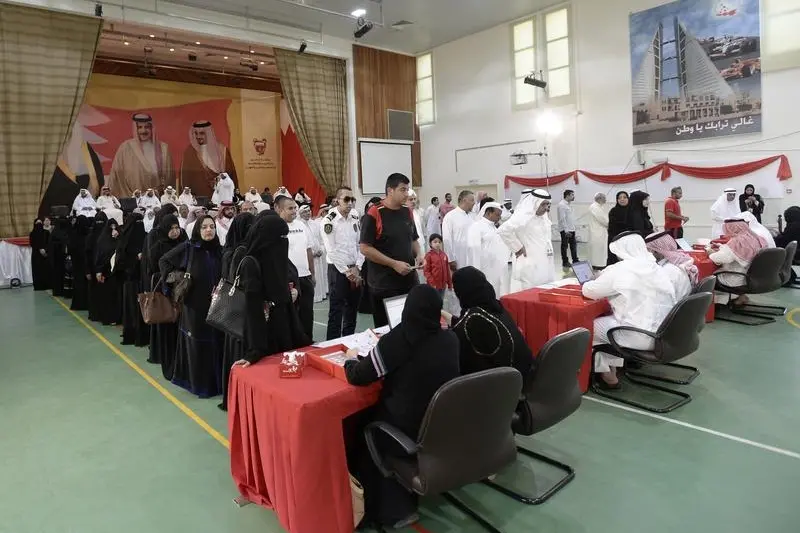PHOTO
DUBAI, Sept 17 (Reuters) - Bahrain's King Hamad bin Isa Al Khalifa on Thursday ordered the formation of a "smaller cabinet" within the government that will look specifically at financial problems raised by lower oil prices, state news agency BNA reported.
The agency said the decree came after the Crown Prince, Salman bin Hamad Al Khalifa, submitted a report to the king on "the impact of the drop in oil prices and other factors on the kingdom's fiscal situation".
"His Majesty the King directed the formation of a smaller cabinet to solve these financial problems as soon as possible and in consultation with His Royal Highness Prince Khalifa bin Salman Al Khalifa the Prime Minister," BNA said.
It gave no further details on when the new group will be formed, how many members it will have or when it will be established.
Bahrain, with much smaller oil and financial reserves than its Gulf neighbours, began to cut some of the subsidies it provides for goods and services such as meat and electricity.
Bahraini citizens, but not foreign workers in the country, were to receive cash payments from the state to offset price rises they would face.
A state budget approved in July envisaged a deficit of 1.50 billion dinars ($4 billion) in 2015, up from an originally planned deficit of 914 million dinars last year.
($1 = 0.3772 Bahraini dinars)
(Reporting by Hadeel Al Sayegh, editing by Sami Aboudi/Ruth Pitchford) ((Hadeel.AlSayegh@thomsonreuters.com; +971566883310;))
The agency said the decree came after the Crown Prince, Salman bin Hamad Al Khalifa, submitted a report to the king on "the impact of the drop in oil prices and other factors on the kingdom's fiscal situation".
"His Majesty the King directed the formation of a smaller cabinet to solve these financial problems as soon as possible and in consultation with His Royal Highness Prince Khalifa bin Salman Al Khalifa the Prime Minister," BNA said.
It gave no further details on when the new group will be formed, how many members it will have or when it will be established.
Bahrain, with much smaller oil and financial reserves than its Gulf neighbours, began to cut some of the subsidies it provides for goods and services such as meat and electricity.
Bahraini citizens, but not foreign workers in the country, were to receive cash payments from the state to offset price rises they would face.
A state budget approved in July envisaged a deficit of 1.50 billion dinars ($4 billion) in 2015, up from an originally planned deficit of 914 million dinars last year.
($1 = 0.3772 Bahraini dinars)
(Reporting by Hadeel Al Sayegh, editing by Sami Aboudi/Ruth Pitchford) ((Hadeel.AlSayegh@thomsonreuters.com; +971566883310;))





















